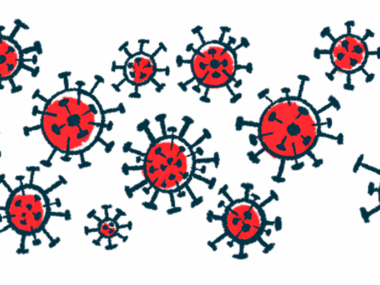Nykode’s ‘inverse vaccine’ found to prevent MS in mouse model
Vaccibody designed to teach immune system not to attack certain proteins
Written by |

An inverse vaccine developed by Nykode Therapeutics to boost immune system tolerance to a specific protein target was able to prevent the development of multiple sclerosis (MS) in a mouse model of the disease.
The vaccine, known as a Vaccibody, is designed to teach the immune system to recognize certain proteins as self without impacting other immune cell functions, as is often seen with current MS therapies.
The data, which were presented in a poster at the 2024 Antigen-Specific Immune Tolerance Drug Development Summit, “provide additional motivation for us to pursue a completely new approach to treating autoimmune diseases,” Agnete Fredriksen, chief business officer and co-founder of Nykode, said in a company press release.
The immune system usually protects the body against potential threats by attacking what it doesn’t recognize as self. In autoimmune diseases, however, the ability to distinguish what is self from what isn’t becomes impaired, and the immune system starts to attack the body’s own tissues, driving a lasting inflammatory response.
In MS, for example, the immune system attacks the myelin sheath, a fatty coating that wraps around nerve fibers to help them send electrical signals faster, and the resulting damage causes a range of symptoms.
Inverse vaccine designed to induce immune tolerance to certain antigens
The idea behind an inverse vaccine is to induce immune tolerance. In contrast with a regular vaccine, which teaches the immune system how to fight a threat, it instead tells the immune system that certain targets (antigens) should not be seen as a threat and should be left unharmed.
Nykode’s inverse vaccine technology is designed to deliver small circular DNA molecules to muscle cells that provide the instructions for making the Vaccibody proteins. These proteins are then secreted by the cells and, once in circulation, they target antigen-presenting cells (APCs).
APCs are immune cells capable of processing and presenting certain targets to immune T-cells, promoting an immune response against those targets. However, Vaccibody vaccines are instead developed to recruit APCs that present targets to regulatory T-cells, which limit the activity of other immune cells.
The company has now presented data from a Vaccibody called TV004, which was designed to induce tolerance against myelin oligodendrocyte glycoprotein (MOG), a myelin protein.
In a mouse model of experimental autoimmune encephalitis, which is commonly used to mimic MS in mice, TV004 infections before MS induction effectively protected the animals from disease, with very mild or no symptoms at all over 28 days.
The treatment also showed a dose-dependent reduction in the amount of pro-inflammatory molecules found at the peak of disease symptoms.
Effect was immune tolerance specific to MOG protein
The effect was specifically related to immune tolerance to the MOG protein, as treatment with a Vaccibody designed to induce tolerance against ovalbumin (the major protein found in egg white) resulted in symptoms as severe as those on a placebo.
“In addition to stopping the disease development, the data show that the disease protection is antigen-specific,” Fredriksen said.
“This supports our technology’s potential to offer future treatments that precisely target specific autoimmune disorders without negatively affecting a fully functional immune system, a common side effect associated with today’s available treatments,” Fredriksen added.
The researchers have plans to carry out an “in-depth analysis aimed at further dissecting the immunological and molecular mechanisms behind the disease control mediated by Vaccibody vaccine,” they wrote.







